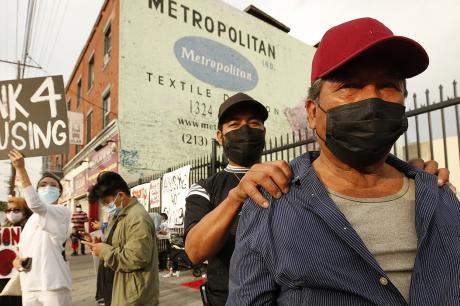Articles and analysis on today's issues

As data centers see a surge in demand because of generative AI, Henrico County, Virginia, shows how local governments can turn the economic gains of this new industry into sustainable funding for affordable housing.
How Partnerships Can Lead to Emergency Rental Assistance Program Success Community organizations can fill gaps and help governments get assistance to those who need it most.More Access to Broadband and Public Transit Can Lead to a More Equitable Civil Justice System For policymakers to ensure equitable access to the civil justice system, investments should be made in broadband and public transportation infrastructure.Four Lessons from the District of Columbia Public Schools’ COVID Test-to-Return Program The District of Columbia Public Schools’ (DCPS) test-to-return program demonstrates how large-scale testing can generate data to inform staffing, instructional models, and resource allocation and help align public health and education efforts as the COVID-19 pandemic continues.Four Ways to Pursue Racial Equity and Community Development Finance as a Moral and Economic Imperative An equity-centered systems change could propel community development finance as a moral and economic imperative, sustaining racial equity commitments beyond national moments of crisis.What Different Denial Rates Can Tell Us About Racial Disparities in the Mortgage Market Identifying disparities and their causes can lead to strategies to help people get over financing barriers, address the legacies of racist policies and practices, and tap into the security and wealth-building power of homeownershipAddressing Inequitable Access to Services as a Market Failure New Urban research on promising policies from abroad offers lessons for US policymakers to address inequitable access to services, partly symptomatic of market failures, by encouraging a larger role for government action.





